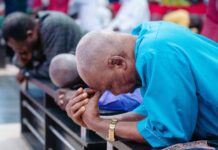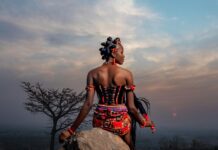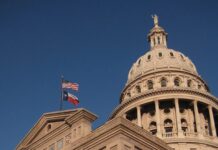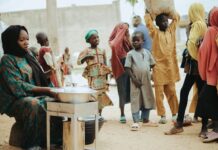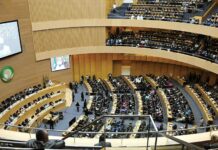Africa has a major problem, its leaders are too old. Despite being the youngest continent in the world, Africa’s leaders are often many decades older than the median age within our countries.
Just to look at a few examples of this phenomenon, the current Presidents of Ivory Coast and Equatorial Guinea are currently both 81 years old. Zimbabwe’s current president Emmerson Mnangagwa is 80 years old. Recently the president of Namibia, President Hage Geingob, passed away in office at the age of 82, only to be replaced by his vice president, Nangolo Mbumba, who himself is also 82 years old. Cameroon’s president Paul Biya is currently a mind-boggling 91 years old, and there are many more examples of this phenomenon.
There are a few African countries that manage to buck the trend and have managed to democratically elect younger leaders. Senegal being one of them, after they recently elected President Diomaye Faye at just 44 years old. Other leaders include Ethiopia’s president, Abiy Ahmed, at 49 years old
Unfortunately, this trend doesn’t seem like it would be changing anytime soon. This phenomenon is not simply a result of there being a lack of young Africans who are interested in being politically engaged. There are plenty of young Africans who would like nothing more than the ability to change the current status quo in many of our countries.
Rather, this a result of the systems put in place by our governments aimed at preventing younger people from being more politically engaged. Many younger Africans do exhibit a significant interest in advocating for political reforms, however many find themselves discouraged by the structures within African political systems.
These systems often employ tactics such as:
- Exorbitant fees for electoral candidacies
In many of our countries the financial costs required to even run for office are placed at such exorbitantly high rates that they managed to disqualify a large portion of potential candidates from even attempting to run for office. Younger Africans especially are disproportionately affected by this, because they will more often be unable to afford to pay these fees towards their country’s electoral commission.
- Restrictions on freedom of speech
This restrictions on speech serve to dissuade the involvement of younger generations in the political sphere. Laws which restrict speech that could be deemed offensive towards political leaders are often used to arrest politicians who have said things critical of the government.
- Lack of Press Freedom
Governments in some African countries control or heavily regulate access to information, including news outlets and the internet. This lack of press freedom prevents many younger Africans from getting informed about political issues and engaging in meaningful action. As a result, there are many younger Africans who feel totally disconnected from the political process and are less motivated to participate.
- Intimidation and Violence:
Intimidation and violence are unfortunately common tactics used to silence dissent and discourage political participation, particularly among younger Africans. Threats of violence or harassment against young activists and politicians serve to deter many from speaking out or running for office, which only serve to reinforce younger Africans lack of political power.
- Limited Youth Representation:
In many cases, having representation in government already can serve as a major source of motivation for many to get more involved politically. However, many African political systems lack any meaningful representation for young people.
Younger African generations are often marginalized within political parties and government institutions. They are often given limited opportunities to voice their concerns and contribute to decision-making processes. This means that the issues younger generations care about the most are hardly addressed and as a result, many younger Africans become increasingly disillusioned with the political system.
- Lack of Civic Education:
A lack of comprehensive civic education programs in schools and communities often contribute to the apathy felt by many young Africans towards the government and political participation. Because many lack a solid understanding of democratic principles, political systems, and their rights and responsibilities as citizens, they don’t see the importance of being politically engaged.
In conclusion, the barriers to political engagement faced by young Africans are often cause by deliberately entrenched barrier within the structures of our political systems. From prohibitive candidacy fees to restrictions on freedom of speech and limited access to information, these obstacles are often aimed at hindering any meaningful political participation by younger African generations. In order to overcome these challenges, concerted efforts must be made to dismantle these systemic barriers in favour of greater civic engagement. By addressing these issues, we can push for more positive change and democratic progress on the continent.





